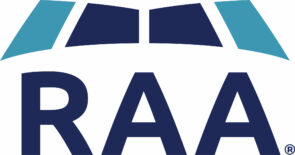
6 ITEMS TO INCLUDE IN YOUR ESTATE PLAN
- Posted by Brad Bridgewater
- On November 23, 2016
- charitable giving, documents, estate planning, plans, POA
Perhaps no other aspect of retirement planning is as overwhelming as creating an estate plan. It’s hard to anticipate every eventuality, and it’s even harder to make decisions regarding your family’s future that doesn’t include you.
For these reasons, along with the intense emotions that accompany facing their own mortality, many people don’t take the time to create an adequate estate plan. Unfortunately, in those cases, family members can find themselves completely unprepared for the loss of a loved one who hasn’t explicitly made his or her wishes known. Financial preparation and a detailed estate planning checklist can help you cover your bases and lessen the negative impact on your family as they continue your legacy.
The following are key topics to consider when drafting your estate plan.
1. UPDATED DOCUMENTS
Complete estate plans include documents such as wills and living wills, a durable power of attorney, healthcare directives, and trusts. Life circumstances change, and it is critically important to keep these documents relevant and current. Inconsistencies in these documents can wreak havoc on your estate and your beneficiaries. Revisit these items at least once annually to ensure their accuracy.
2. ACCESS TO WILLS AND POA DOCUMENTS
Communicate closely with both your beneficiaries and your professional advisors to ensure that those administering your estate will have easy access to any wills or powers of attorney executed on your behalf. Doing so will facilitate the accurate distribution of funds and assets along with proper representation by the attorney for the estate.
3. ESTATE AND GIFT TAX PLANS
A quality estate plan should account for the possibility of the estate and/or gift taxes that will affect your beneficiaries. Legislation and tax laws regarding estates change frequently, as do the amounts that are subject to such taxation. A skilled advisor will help you anticipate the impact of these taxes on the assets in your estate and minimize the tax burden your loved ones might otherwise experience without careful consideration.
4. CHARITABLE GIVING
One of the most profound ways to solidify your legacy and support the people and organizations you care about is through charitable giving. These planned contributions not only help those in need, but they also have a positive net effect on the taxable status of your estate. Whether it’s an annual scholarship for a student to attend your alma mater or a trust that benefits a cause you value, be very specific as to the nature, timing, and delivery of charitable contributions in your estate plan.
5. ACCOUNT REGISTRATIONS
Estate and tax law provide for several different account registrations that each come with their own set of pros and cons. One such designation is Individual w/TOD (Transfer on Death) rights. This type of account allows beneficiaries to receive benefits from certain individual accounts (IRAs or 401(k) accounts) without going through probate.
Joint Tenants in Common (JTIC) is a brokerage account owned by at least two people with no rights of survivorship. In these accounts, specific allocations of all proceeds must be codified in a will.
Tenancy by the Entirety (TBE) allows spouses to own property as a single legal unit. Obviously, your personal circumstances and goals will determine the account type or types you choose, and the help of a professional is invaluable to protect and effectively distribute the proceeds of your estate.
6. LETTER OF INSTRUCTIONS FOR FINAL WISHES
One of the easiest ways to communicate your estate plan is via an official Letter of Instructions for Final Wishes. Consider completing an RAA Planning Ahead Organizer which includes everything from the details of your financial situation, to the location of key documents funeral preferences (place, services, type of burial, etc.) and people to contact. These details make the transition easier and less stressful for those you love.
While the feeling of loss will always be present when a loved one passes, the process can be made much easier for those entrusted with your estate by creating and utilizing a detailed estate plan that accurately reflects your goals and desires. The structure provided by your legal documents and financial plan will ensure a smooth transition and prevent issues from harming your beneficiaries or the estate you worked so hard to build.
If you would like to speak to someone about your estate plan, request a call with an advisor at RAA using the form below.
Disclaimer: This blog is intended for informational purposes only and should not be construed as individual investment advice. Actual recommendations are provided by RAA following consultation and are custom-tailored to each investor’s unique needs and circumstances. The information contained herein is from sources believed to be accurate and reliable. However, RAA accepts no legal responsibility for any errors or omissions. Investments in stocks, bonds, and mutual funds may increase or decrease in value. Past performance is no guarantee of future results. Any of the charts and graphs included in this blog are not recommendations for the purchase and sale of any security.



0 Comments